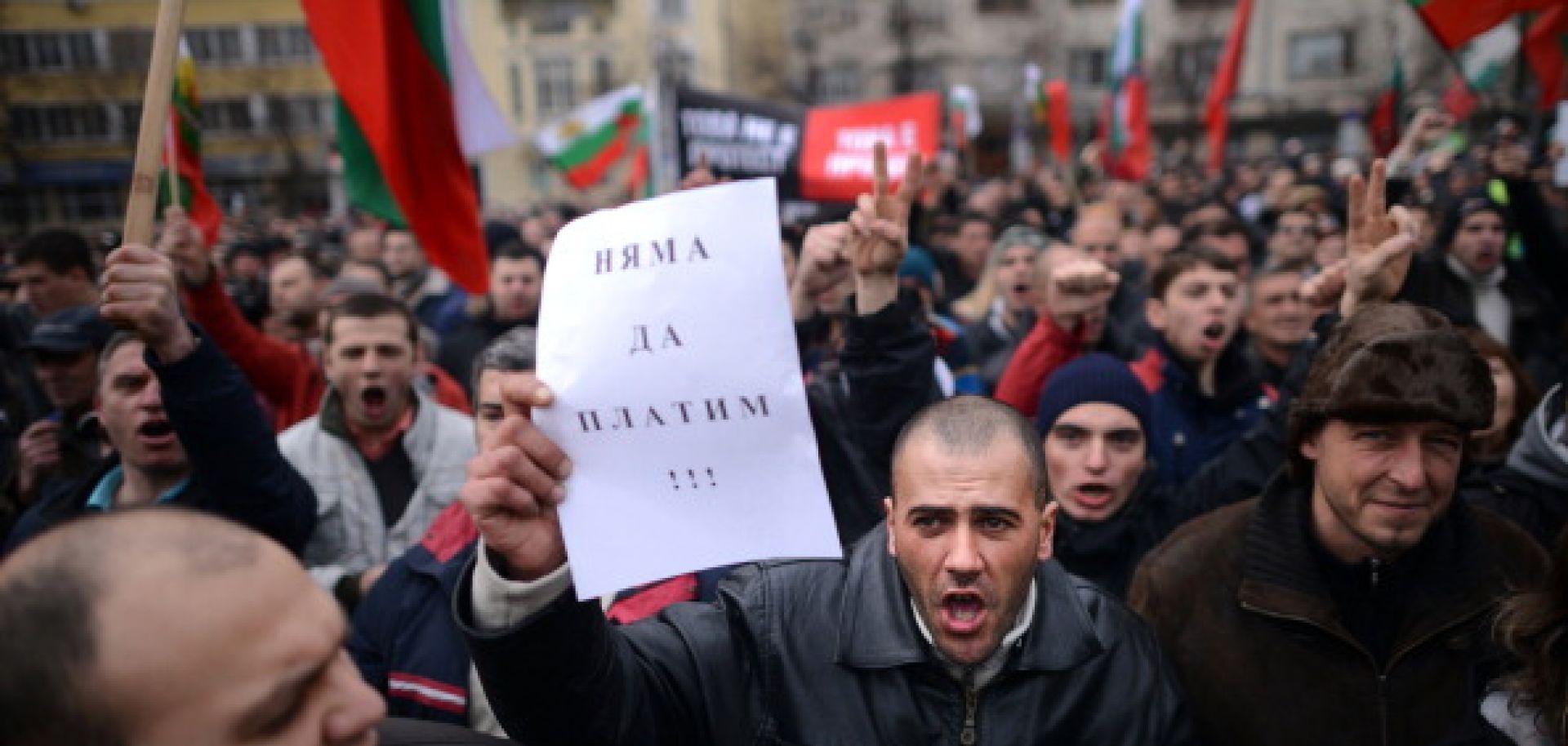ASSESSMENTS
In Bulgaria, High Energy Prices Bring Down the Government
Feb 20, 2013 | 15:44 GMT

DIMITAR DILKOFF/AFP/Getty Images
Summary
In Bulgaria, as elsewhere, administrations change, but the constraints those administrations face remain the same. On Feb. 20, Bulgarian Prime Minister Boyko Borisov announced the resignation of his entire Cabinet. The announcement follows days of protests against rising utility prices and calls for the government's resignation. The parliament, which is dominated by the prime minister's GERB party, will vote on the resignation on Feb. 21. While the mechanics of the political transition remain unclear, it is likely that elections will be held prior to their originally scheduled date in July.
Whoever rules Bulgaria will inherit the same issues that constrained the Borisov administration. Like many of its Central European neighbors, Bulgaria faces steep challenges in preserving its EU-sanctioned financial austerity policies. Political instability in Bulgaria, especially regarding future energy policy, will be of increasing concern to other countries with interests in Bulgarian energy. Russia, which is Bulgaria's only natural gas supplier, will want to ensure that political instability does not delay the construction of the South Stream natural gas pipeline. Moscow may offer the new government in Sofia short-term natural gas price discounts to help manage the social unrest, but such a measure, even if it were successful, would only be a temporary solution to a longer-term problem.
Subscribe Now
SubscribeAlready have an account?
